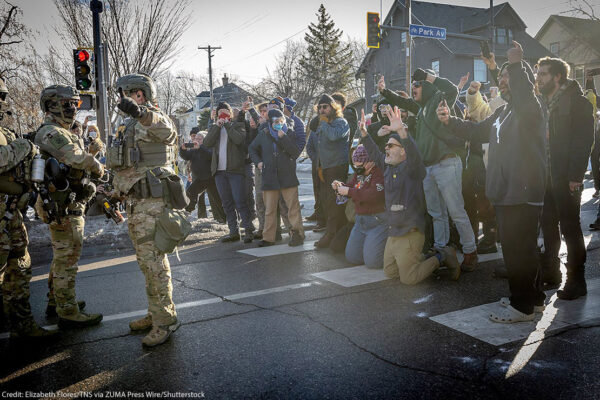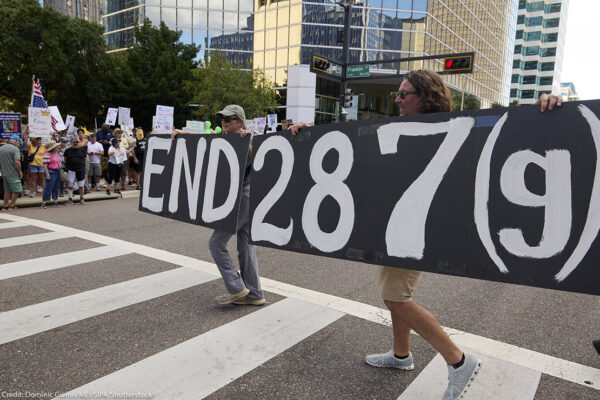CA's Anti-Immigrant Proposition 187 is Voided, Ending State's Five-Year Battle with ACLU, Rights Groups
FOR IMMEDIATE RELEASE
LOS ANGELES -- A court-approved mediation today ended years of legal and political debate over Proposition 187, a controversial ballot measure that sought to limit services to illegal immigrants.
The agreement confirms that no child in the state of California will be deprived of an education or stripped of health care due to their place of birth. It also makes clear that the state cannot regulate immigration law, a function that the U.S. Constitution clearly assigns to the federal government.
Passed in November 1994, Proposition 187 sought, among other things, to require police, health care professionals and teachers to verify and report the immigration status of all individuals, including children.
Days after the measure passed, a federal district court judge held that it violated the United States Constitution and issued an injunction barring its implementation. Today's agreement validates that ruling.
"The seal of the great state of California is now stamped on the death certificate of Proposition 187," said Mark Rosenbaum, Legal Director of the American Civil Liberties Union of Southern California, a litigant in one of several challenges to the measure. "The court-approved stipulation marks not just the end of this case, but an end to nearly five years of racial divisiveness throughout California."
California's Assembly Speaker Antonio Villaraigosa, who participated in the mediation, agreed.
"Today's settlement signals that it's time to move beyond the divisiveness of Proposition 187," he said. "The decision ensures that children can get an education, working families can get health care, and law enforcement can focus on fighting crime. We stand together today to say in one loud voice that Californians are tired of wedge issues and culture wars."
In March 1998, U.S. District Judge Mariana Pfaelzer issued a final ruling in the ACLU's challenge to Proposition 187, confirming the federal government's exclusive authority over immigration and declaring the measure unconstitutional. The ACLU's news release on that ruling is at /news/n031898a.html.
CHRONOLOGY OF PROPOSITION 187
November 8, 1994
California voters pass Proposition 187. The stated purpose of the Proposition is to "provide for cooperation between [the] agencies of state and local government with the federal government, and to establish a system of required notification by and between such agencies to prevent illegal aliens in the United States from receiving benefits or public services in the State of California."
November 9, 1994
After Proposition 187 passes, several actions challenging its constitutionality are commenced in California state and federal courts. Gregorio T. v. Wilson brought by the ACLU/SC and MALDEF, contests all provisions of the initiative. Ultimately, five suits are filed in the United States District Court. The plaintiffs seek to bar the Governor and other state officials and entities from implementing and enforcing the provisions of Proposition 187.
November 1994
A temporary restraining order is issued, barring Proposition 187 from being implemented.
August 22, 1996
President Clinton signs the Personal Responsibility and Work Opportunity Reconciliation Act (PRA) of 1996 into law. The PRA creates a statutory scheme that restricts and defines the eligibility of certain non-citizens for federal, state and local benefits and services.
September 30, 1996
President Clinton signs into law the Illegal Immigration Reform and Immigrant Responsibility Act (IIRAIRA), further supplementing the federal immigration regulatory scheme.
March 13, 1998
The district court issues decisions, ruling that sections 1, and 4 through 9 of Proposition 187 are preempted by the federal PRA, IIRAIRA, and other federal law.
June, 1999
Governor Davis initiates a request for mediation to resolve the appeal of Proposition 187.
July 29, 1999
The mediated agreement is signed by all parties and submitted to the court.



